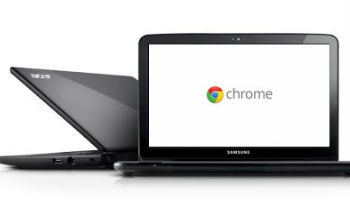Google Expands Chromebook Retail Presence

Google has added to its existing Chromebook retail network with the addition of Staples and Walmart
“If you look at Chromebooks from a market strategy standpoint, most of them are priced quite aggressively,” said Charles King, principal of Pund-IT. “Walmart is going to expose the products to a huge consumer base that is extremely price-sensitive.”
That’s even more so in the United States, he said, where the “market seems to be moving away from traditional packaged software applications toward interactions that are primarily online-based or that utilise very specific types of applications. If you look at the way most people use the Web in most cases, maybe they are using a productivity app or maybe email. But the vast majority of their time is spent online. That’s a use where the Chromebook excels.”
![]() Meanwhile, the Staples partnership will expose more small business people to Chromebooks, which will also help Google sell more of the devices, said King. “The two-pronged focus could work very well for Google.”
Meanwhile, the Staples partnership will expose more small business people to Chromebooks, which will also help Google sell more of the devices, said King. “The two-pronged focus could work very well for Google.”
Maribel Lopez, principal of Lopez Research, told eWEEK in an email reply that “Google’s Chromebook needs to get as much exposure as possible” for it to be more successful in the marketplace.
“Walmart wouldn’t be my first choice, but the price is right for that channel and the scale of its retail stores makes sense for Google,” wrote Lopez. “Target has a ‘hipper’ branded image and I expect to see it there.”
The challenge remains, however, for Google to really drive sales of Chromebooks against competitors, many of which are fully featured laptops that can do more while also storing large amounts of data on the devices, wrote Lopez. “At the end of the day, I don’t expect Google Chromebooks to challenge any of the major platforms in terms of sales.”
One issue is that “Chromebooks aren’t about the hardware as much as they are about getting people to use all Google services such as Chrome browser and Google Apps,” wrote Lopez. “Google still makes money from understanding user behaviour and monetising it. For example, the K-12 schools in Malaysia will be using Chromebooks. Imagine what types of insights on user behaviour [and other data] that could be learned.”
Back in March, Google had unveiled an earlier expansion of Chromebook sales to six more nations and to additional Best Buy stores in the US. At that time, the smaller, lighter and inexpensive Internet-centric computers were being rolled out by Acer, Hewlett-Packard and Samsung in Australia, Canada, France, Germany, Ireland and the Netherlands.
Consumers, however, haven’t been jumping aboard the Chromebook bandwagon in huge numbers, based on sales so far. In fact, several systems makers have released Chromebooks in the last year, but the systems haven’t stuck with consumers, causing some vendors to retreat or try again with new machines that offer expanded features.
Let us probe your knowledge of Google. Try our quiz!
Originally published on eWeek.